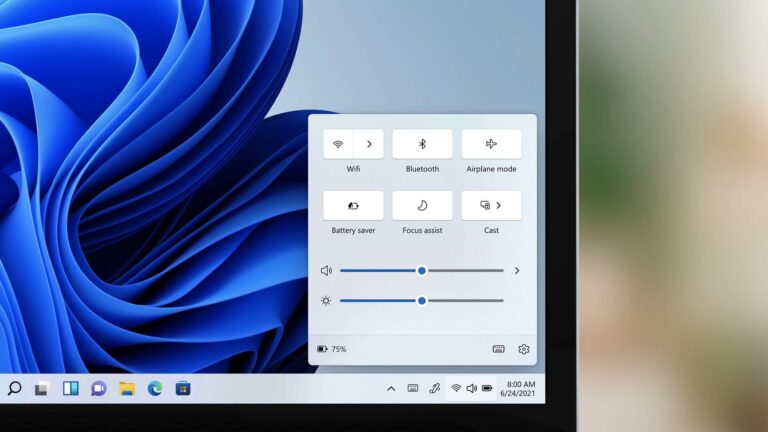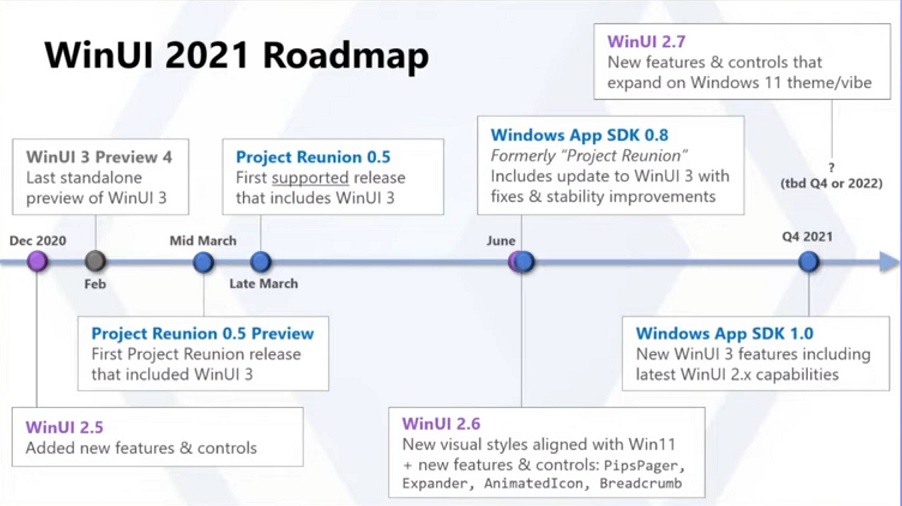Microsoft will prioritize the refresh of Win32 apps for Windows 11, Windows 10, and Windows 8.
Microsoft will prioritize the refresh of Win32 apps for Windows 11, Windows 10, and Windows 8.
WinUI is a new user interface for
Windows 10 and Windows 11 that includes modern controls and styles for Windows
apps. Microsoft officials refer to WinUI as the "native UI platform,"
and it is used in the Windows shell as well as React Native for Windows.
WinUI, according to Microsoft, is
designed for today's modern hardware and devices, and it supports the most
recent Fluent styling. The majority of the modern controls and styles seen in
Windows UWP apps are part of the company's WinUI project, which embodies Fluent
Design and provides each app with the "modern touch" that users
expect.
WinUI 2 is WinUI's second
generation work, and it is a library of controls and styles for UWP apps.
Microsoft is bringing new modern and fluent styles/controls to desktop apps
with WinUI 3, the next generation of WinUI. As a result, previously-legacy app
platforms now have access to all WinUI capabilities.
Microsoft originally stated that
WinUI 3 would be available for all development platforms, but this appears to
have changed. Microsoft confirmed during the community call that WinUI 3 (the
next generation WinUI framework) is not planned for UWP apps.
Instead, the company intends to
concentrate on WinUI 3 for previously-legacy development platforms.
“In terms of those plans or lack
thereof, that is not intended to be an announcement that WinUl 3 will never
support UWP,” Microsoft explained.
In terms of the general
availability of WinUI 3 for UWP, Microsoft does not have a timetable or
confirmed plans to transition WinUI 3 UWP support from Experimental to Stable.
“At the moment, I'm not sure when
or if WinUl 3 will be stable and supported for UWP. We have no plans to do so
right now or in the near future. There has been no internal decision to say
that we will never do it, nor has there been any internal decision to do it.
There are currently no plans. We have no plans right now, and we plan 6 months
to a year ahead, so no plans for the next year,” wrote WinUI Program Manager
Ryan Demopoulos in a Discord channel.
According to Microsoft officials, the company's priority is to "get WinUl 3 working for Win32 developers." As part of the new strategy, Microsoft says it will reach out to a large community of Win32 developers to persuade them to update their apps for Windows 11.
WinUI 3 is a positive change for
Win32 developers because Microsoft has finally opened up all modern
functionalities.
So what was old is new again, but this move will not be comforting to UWP developers. This is due to the fact that WinUI 2 has a number of limitations. It does not, for example, support Microsoft's Chromium-based WebView2 control or NET 5.0.
To summarize, UWP is not dead,
and there are no plans to kill it, but the company's current priority is the
WinUI 3 refresh for Win32 apps.


Comments
Post a Comment